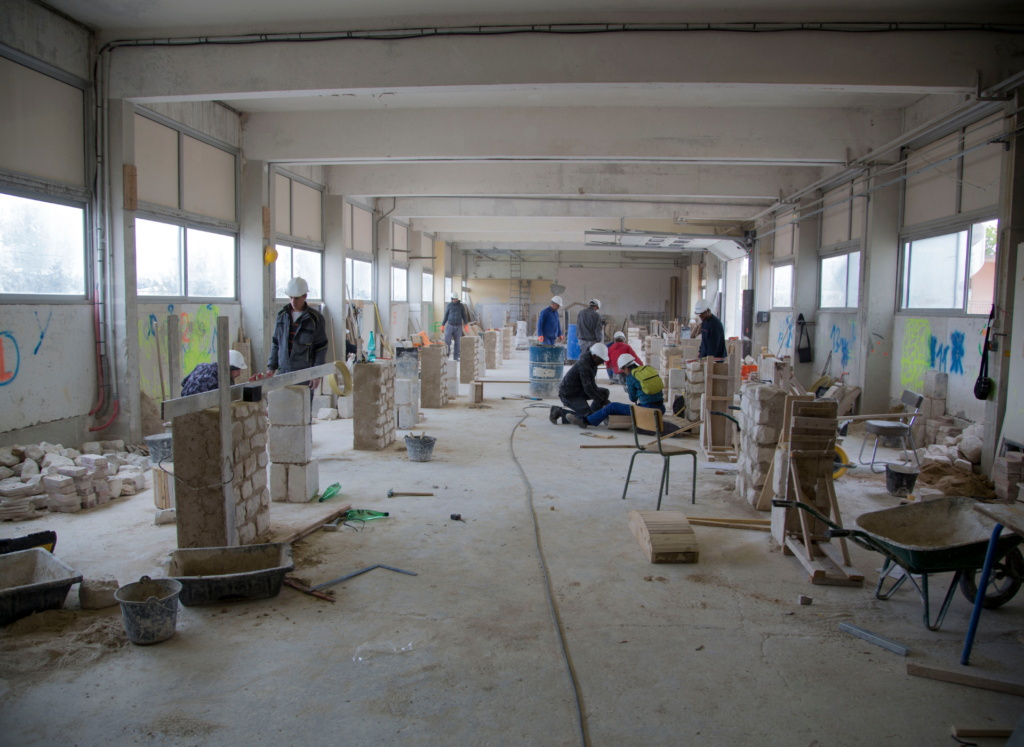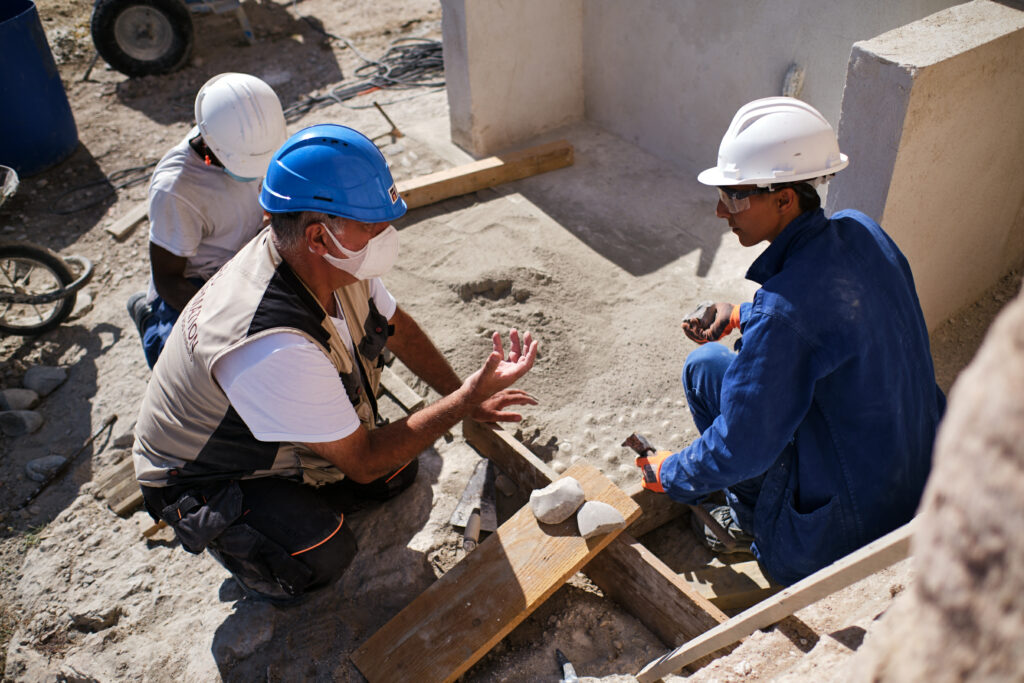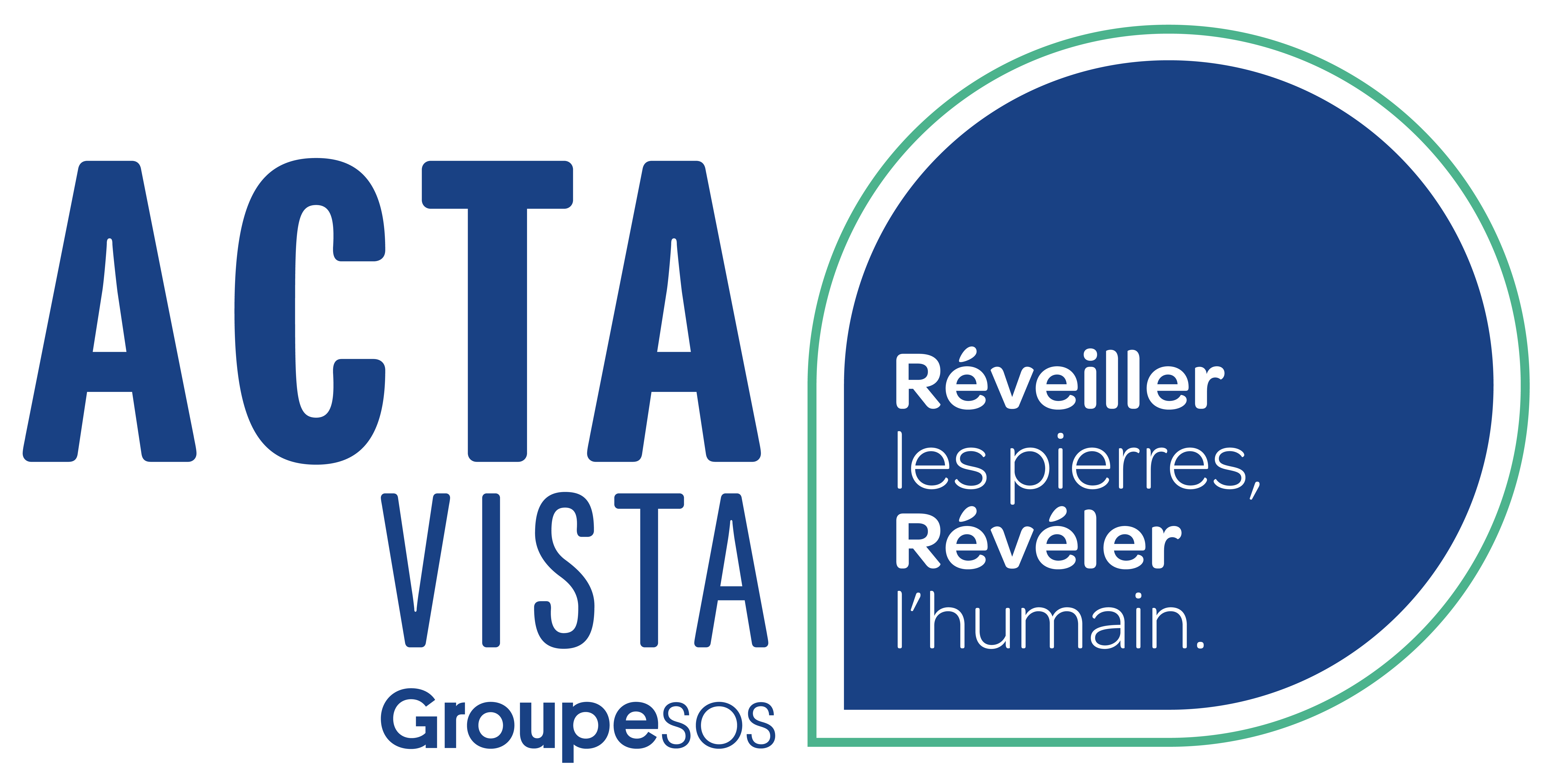OUR IMPACT
For the territoires
Our integration projects help create a real dynamic in our areas of intervention in terms of employment, training and attractiveness.
- The creation of jobs dedicated to people in precarious situations and their support towards a sustainable professional future contribute to the fight against exclusion and poverty.
- The training provided on our sites allows us to transmit and preserve know-how in the regions.
- The restoration and enhancement of sites contributes to the dynamism of tourism and the attractiveness of the territories.
- The economic impact of our actions has also been measured thanks to a study conducted by McKinsey & Company in 2010. The difference between the benefits (collection of employer’s charges and taxes, avoided unemployment benefits) and the subsidies paid (integration contracts) makes it possible to save an average of 8,000 euros per employee, which represents an average ROI of 60%.
For the companies
Our work sites contribute to the economic and social dynamism of the regions by enabling the training and qualification of job seekers. After their stay at ACTA VISTA, 50% of the people trained go on to work in the construction sector and 50% in other sectors of activity (catering, security, cleaning, commerce, logistics, etc.).
ACTA VISTA can thus support companies in their recruitment needs and guide employees in integration at the end of their training. Their time at ACTA VISTA will have enabled them to acquire the codes of the company, to show their reliability, their motivation and their adaptability.

For job seekers
Our workcamps are a real springboard towards employment and more concretely they offer to the jobseekers of the territories:
- A work contract
- A training accessible to all
- A qualification
- Social and administrative assistance
- The construction of and access to a professional project
- A social link & a strong human adventure
- Belonging to a collective
- The recovery of self-confidence
- Participation in the restoration of exceptional sites
6,000 people have been accompanied to employment since our creation in 2002
For the ecological transition
Since the beginning, we have developed a particular attention to the preservation of our environment.
This commitment can be seen at different levels:
On our construction sites
Our work is carried out in an eco-construction approach by using the old know-how of the building industry:
- Waterproofing screed with crushed brick
- Insulating screed with clay balls
- Insulating plaster made of lime and hemp
- Laying of locally made terracotta tiles
- Sifting of our rubble for reuse
- Conservation of old stones for reuse
- Purchase of French wood from certified sustainable forests
- Manufacture of wooden joinery in our premises and natural treatment of wood
- Manufacture of ironworks in our premises
- Purchase of lime, sand and stone from local sources
- Use of natural ochres for our coatings.
And modern techniques of eco-construction:
- Installation of floor heating/cooling systems powered by heat pumps
- Use of cellular glass floor insulation and thermal breaks (produced with over 60% recycled content)
- Installation of low energy LED lighting
- Installation of insulated, double-glazed wooden windows.
In the life of the association
A working group led by employees of the association has initiated concrete actions: clean mobility package, purchase of computer and electronic equipment from refurbishing platforms, recycling, responsible purchasing, use of ecological products for cleaning, installation of water jugs to replace plastic bottles, etc.
But we are aware that we must go much further and that a real revolution must take place within structures such as ours.
New and very concrete measures, supported by our teams, will be implemented in the coming months.

Our study of the impact
In order to better understand its social model and improve the measurement of its impact, ACTA VISTA has partnered with the SoMuM Institute of Aix-Marseille University to study the social impact of its actions by a team of researchers, in order to develop an evaluation tool by extending it to all components of inclusion.
Click here to consult our impact study realized between 2021 and 2023 by the Institut Sociétés en Mutation en Méditerranée.
The economic impact of our actions has also been measured thanks to a study conducted by McKinsey & Company in 2010

How about staying in touch?
Stay informed about our latest news, upcoming events and more.
Your email address is only used to send you newsletters about our business. You can use the unsubscribe link integrated in the newsletter at any time. To find out more about your rights, please consult the personal data protection charter.

ACTA VISTA is an association of the Groupe SOS


ACTA VISTA
Fort d’Entrecasteaux
1, bd Charles Livon 13007 Marseille France
Phone : +33 (0)4 91 72 79 00
Fax : +33 (0)4 91 72 44 82
Email : contact@actavista.fr
